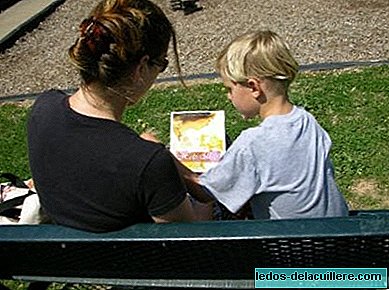
For some time now, most parents are requesting that their children learn english from an early age in schools.
The reason should be (I think) to offer children the opportunity to learn a language that most adults do not know and that would be a plus when communicating with other populations and understanding each other in an increasingly global world.
Everyone knows that children have an amazing learning ability and that is why the age at which they receive English classes is advancing. However, we can ask ourselves the following questions: Is this adequate? When should children start studying English?
The European Union believes that learning languages at an early age can be very beneficial for children. In a study presented in 2006 they concluded that by learning new languages they develop their linguistic competence, better assimilate all languages (including mother tongue) and know other cultures and ways of thinking that can help in their overall development.
Knowledge of other languages, and in particular of English, allows people to communicate with other people and obtain information that until now has been “banned” for Spaniards, simply because we don't know the language.
Child you can learn a second (or third) language without problems and, although they tend to have more problems to start speaking, they soon diversify the words according to the language they are speaking.
Now, a child can learn English naturally if he has that language as a familiar language (for the father or mother to speak), if he lives in a country where they speak the language for a couple of years or more, if he is careful by a babysitter who speaks English for several hours a day or if he attends a school where a large number of subjects (if not most) are taught in this language.
Instead, a child progresses very slowly with the current teaching model in which children receive one or two English classes per week.
The same EU, in the study that I comment, states that "The evidence suggests that for early learning, to be adequate, it cannot be left solely in the hands of teachers and schools."
I tell you a personal experience: In a visit to a school a few weeks ago when children started English classes at 4 years old, a mother complained to the director of the school not to start at 3 years old, because her daughter I was going to lose the continuity of the English classes I had started in kindergarten.
The director responded that the reality is that this year they started English at that age at the request of the parents (before they started in primary school), but not because they really learned too much.
In a study published two years ago and conducted by the University of Barcelona, they assessed the level of English reached in children who had started classes at age eight and in children who had started at age eleven. The result was that those of eleven years had a higher level both in writing and in conversation.
The study director concluded that “In immersion conditions young children are like sponges, which absorb the tongue around them. But in conditions of school learning their contact with the language is so small that they cannot absorb it. ”
To sum up: learning English is beneficial for the general lexicon of children, it helps the knowledge of other cultures and allows us to understand the information that comes to us from most corners of the world, the sooner it starts, the better. However, to learn it you need to live with English, as if it were another language to communicate with.
The weekly classes that both parents are requesting and that both advertise some schools They are not the right method to learn English.
Personally, I don't see any problem in young children doing English if these classes are fun and they play them, but if they aren't, I would almost prefer (me, personally) to take advantage of their high learning abilities to play (and learn by playing).












